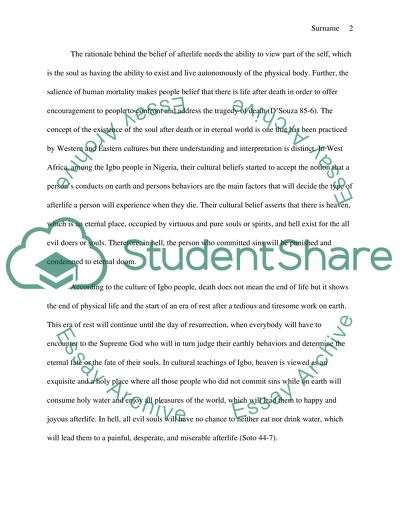Cite this document
(“A specific culture's beliefs about the afterlife Research Paper”, n.d.)
Retrieved from https://studentshare.org/literature/1462023-a-specific-culture-s-beliefs-about-the-afterlife
Retrieved from https://studentshare.org/literature/1462023-a-specific-culture-s-beliefs-about-the-afterlife
(A Specific culture'S Beliefs about the Afterlife Research Paper)
https://studentshare.org/literature/1462023-a-specific-culture-s-beliefs-about-the-afterlife.
https://studentshare.org/literature/1462023-a-specific-culture-s-beliefs-about-the-afterlife.
“A Specific culture'S Beliefs about the Afterlife Research Paper”, n.d. https://studentshare.org/literature/1462023-a-specific-culture-s-beliefs-about-the-afterlife.


